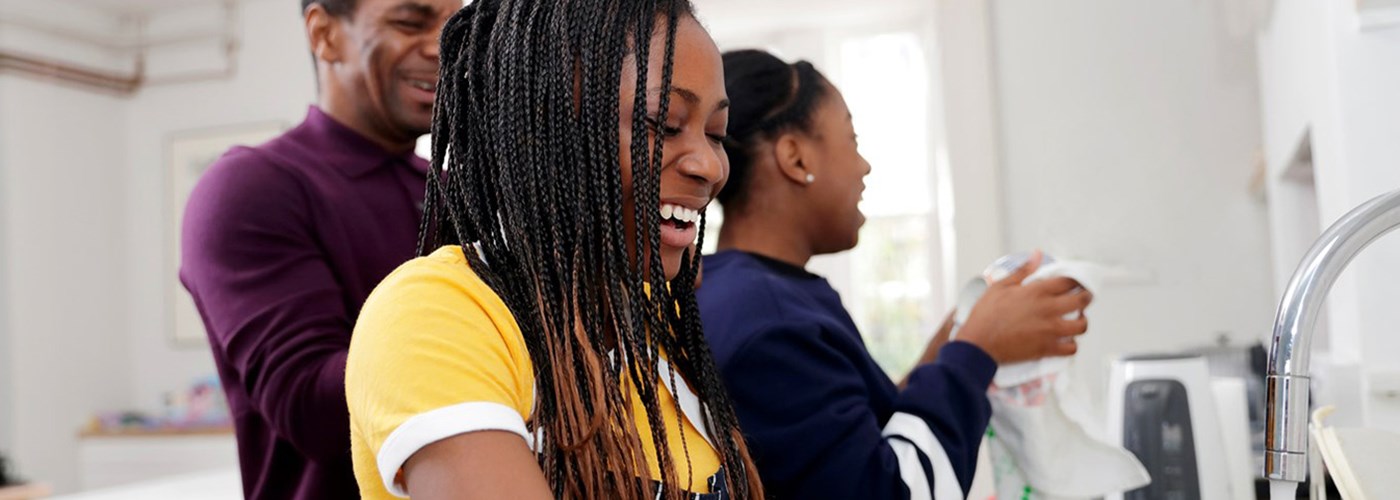How to spot the signs of poor mental health in children
The pandemic has changed our lives in many ways and this hasn't only impacted adults – it continues to have a profound effect on children and young people of all ages too.
Research carried out by Benenden Health found that a third of parents have seen a negative impact on their children’s mental wellbeing since the outbreak of coronavirus. Despite this, 37% of parents haven’t tried to source help.
If you’re worried, here are some ways you can spot the signs of poor mental health in your children and support them during challenging times.
Spotting the emotional signs of poor mental health in children
According to The Mental Health Foundation, significant periods of change can trigger poor mental health for children who are already vulnerable. Typically, these events might be starting school for young children or friendship and relationship breakdowns for young adults. Right now, coronavirus is causing many things in children’s lives to change, from their usual school routine to not being able to see their friends.
As a result, you may see more sadness, anger or fear being expressed. In Benenden Health’s research, parents listed the biggest behavioural change in children as them being increasingly agitated, moody or upset. These signs were spotted by 66% of parents who had seen a negative impact on their children’s wellbeing since the start of the coronavirus pandemic.
Other emotional signs to look out for include:
Crying more than usual
Persistent sadness
Irritability and aggression – particularly if this manifests in regular, unprompted outbursts
Appearing bored more often than normal
Talking about morbid topics such as death or suicide
Spotting the behavioural signs of poor mental health in children
As well as emotional signs, you might find some changes in the way your child behaves that could give you an indication they are suffering from poor mental health.
In Benenden Health’s research, 41% of parents that had noticed a negative impact on their children’s wellbeing since the start of the coronavirus pandemic said misbehaving was the biggest issue.
Some of the behavioural signs that could be a sign of poor mental health include:
Young children may become clingier while young adults more become more withdrawn
Losing interest in friends and other things they like doing
Being reluctant to talk
Usual activities don’t retain their interest
Difficulty concentrating
Spotting the physical signs of poor mental health in children
In addition to emotional and behavioural signs, you might find physical changes in your child that suggest they are suffering from poor mental health.
Some of the most common signs to look out for include:
Changes in appetite
Disrupted sleep patterns
Increased incidences of bed wetting for younger children
Frequent headaches or stomach aches
Rapid loss of weight
Teeth grinding
Loss of hair
Self-harm
How to help children showing signs of poor mental health
Once you understand how to spot the signs of poor mental health in children, you can start to consider how to help them cope.
Be open and honest
It is vital that you are open and honest with your children. Give them chance to talk about it, ask what is causing them stress and give them the opportunity to come up with a solution. Offer them your full support and make sure you let them guide the conversation. Listen and respond in a respectful manner so they know their worries are being heard.
Explain what’s happening
If coronavirus is causing them stress, explain what is happening to keep everyone safe. Use words they will understand and only refer to reliable sources of information. Young people will be getting information from chats with friends and social media. Keep discussions open and honest. Be inquisitive about what information is being shared among friends and social media so that you can correct any coronavirus myths or inaccurate information.
Connect with others
Support your children to use their free time to connect with loved ones and friends. This can include family chat time, supervised friends time with younger children or personal time for younger adults. Make sure online and phone use is supervised to protect children and young people from grooming, abuse, discrimination or bullying whilst they are communicating online.
Keep active
Children and young people need a minimum of 60 minutes exercise a day. Not only does this benefit them physically, but the fresh air and movement does wonders for their mental health. If getting your children outside is a struggle – try putting a list of activities in a jar and asking them to pick one out every day. Mixing more traditional exercise such as walking and cycling with more ‘fun’ activities like treasure hunts, hula hooping and dance parties keeps the activity varied and minimises the risk of boredom.
This article has been supported by information from our partner Vita Health.
About our healthcare
Benenden Health provides affordable private healthcare for everyone, giving you access to services such as our 24/7 GP Helpline and Mental Health Helpline straight away. Once you’ve been a member for six months you can request access to diagnostic consultations and tests.
You'll also have access to a wealth of health and wellbeing articles, videos and advice on a range of health issues.


